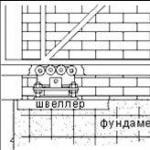Organizational and legal forms of entrepreneurship
1.3 Commercial unitary organizations
Commercial unitary organizations are state and municipal unitary enterprises, unitary state enterprises. A unitary enterprise is a commercial organization that is not endowed with the right of ownership of the property transferred to it by the owner of the property. The property of a unitary enterprise is in state or municipal ownership and belongs to such an enterprise on the basis of the right of economic management or operational management. The property of a unitary enterprise is indivisible and cannot be distributed among contributions (shares, shares), including among employees of the enterprise.
The right of economic management and the right of operational management differ from the right of ownership by restrictions on the freedom to dispose of property. For example, a unitary enterprise, only with the consent of the owner of the property, can sell real estate owned by him on the right of economic management, lease it, or pledge it. The right of operational management, more than the right of economic management, limits the independence of the enterprise and its commercial opportunities. Unitary enterprises are created by decision government agency or local government.
The owner of the property of a unitary enterprise based on the right of economic management - the state or local self-government bodies - is not liable for its obligations, and a unitary enterprise is not liable for the obligations of the state. Such an enterprise is liable for its obligations within the limits of its property. Examples include Russian mail, space communications, the Russian television and radio broadcasting network, and gas networks.
Unitary enterprises based on the right of operational management, created on the basis of federal property, are called state-owned enterprises, for example, airports, research institutes, the Tambov gunpowder factory. The right of operational management implies precisely the management of property, therefore, the owner of the property, at his own discretion, can withdraw it at any time. Examples of municipal unitary enterprises include enterprises of the defense complex, enterprises of communications and urban transport, enterprises that print money, enterprises of housing and communal services, and a water utility.
As a conclusion, it should be noted that certain industries and spheres of life are of increased importance for our state and its citizens. It is in such areas that the state does not trust business that unitary enterprises are born, the freedom of action of the management of which is significantly limited due to the fact that they are created on the basis of state or municipal property.
1.4 Non-profit corporate organizations
Non-profit organizations differ from commercial ones in the main purpose of their activities - they do not pursue profit as the main goal and do not distribute the profits among the participants. Among them may be educational, educational, medical and other purposes, by realizing which the organization can make a profit. In connection with the latest changes in legislation since 2014, the list of organizational and legal forms of non-profit organizations has become closed. There are 11 forms in total.
Non-profit organizations, as well as commercial ones, are divided into corporate and unitary ones. Corporate cooperatives include consumer cooperatives, public organizations, social movements, associations (unions), partnerships of property owners, bar associations and bar associations, Cossack societies, as well as communities of indigenous peoples of Russia. Examples of the most common non-profit corporate organizations are presented in Table 2.
Table 2. Separate organizational and legal forms of non-profit corporate organizations
|
Legal status |
Forms of implementation in economic activity |
|
|
Consumer cooperatives |
Housing, housing construction and garage cooperatives, horticultural, horticultural and dacha consumer cooperatives, mutual insurance companies, credit cooperatives, rental funds, agricultural consumer cooperatives |
|
|
Public organizations |
Political parties, trade unions, bodies of public amateur performance, territorial public self-governments |
|
|
Associations (unions) |
Non-profit partnerships, self-regulatory organizations, associations of employers, associations of trade unions, cooperatives and public organizations, commercial and industrial, notary chambers |
|
|
Associations of property owners |
Homeowners associations in apartment building, residential buildings, country houses, horticultural, horticultural or suburban land plots |
A consumer cooperative is a non-profit organization, which is a voluntary association of individuals and legal entities, on the basis of membership, in order to meet their material and non-material needs. Members of such a cooperative contribute shares. Income from entrepreneurial activity distributed in accordance with the charter among its members.
A public organization is a voluntary association of citizens based on common interests to meet spiritual or other non-material needs, to represent and protect common interests. Such organizations can engage in entrepreneurship only if it corresponds to the statutory goals and is aimed at achieving them. Their members do not retain the rights to the property and membership fees transferred by them to these organizations.
An association (union) is an association of legal entities and (or) citizens based on voluntary or mandatory membership. It is created to represent and protect common interests, to achieve socially useful and other non-commercial goals.
A partnership of real estate owners is a voluntary association of real estate owners created by them for the joint possession, use and disposal of property (things) that are in their common ownership or in common use.
As a general rule, non-profit corporate organizations are the owners of their property, are liable for their obligations with all their property and are not liable for the obligations of their members, and members of the association are not liable for their obligations.
Administrative and legal status of commercial organizations
Legislation of Russia regulating the legal status of legal entities, and types of legal entities as subjects of civil legal relations
The building as a piece of real estate
Commercial buildings - used for doing business (sales, etc.). This category of building can, in particular...
Commercial and non-profit organizations
Commercial organizations set the main goal of their activity to make a profit based on the results of their work. Non-profit organizations do not pursue the goals of making a profit or do not distribute profit among the participants Shitkina I.S ...
Non-Profit Organizations
Organizational and legal forms and types of formal organizations
Business partnerships. These forms can be divided into: A general partnership is a partnership ...
legal entrepreneurial business legal Commercial corporate organizations are created in the form of economic partnerships and companies, peasant (farm) enterprises, economic partnerships, production cooperatives ...
Organizational and legal forms of entrepreneurship
In addition to business partnerships and companies to commercial corporate organizations include production cooperatives and peasant (farm) enterprises ...
Organizational and legal forms of entrepreneurship
Non-profit unitary organizations are foundations, institutions, autonomous non-profit organizations, religious organizations, public law companies...
Advantages and disadvantages of various organizational and legal forms of enterprises
Business partnerships and companies are commercial organizations with authorized (reserve) capital divided into shares (contributions) of founders (participants). The property of such partnerships, convened at the expense of contributions ...
Essential features and types of legal entities
Commercial organizations are recognized as legal entities that pursue profit as the main goal of their activities. Commercial organizations, with the exception of unitary enterprises and other organizations ...
Forms of states in foreign countries
Unitary statehood is the most common form at present state structure. Unitarism is characteristic of the overwhelming majority of states that were formed after the collapse of the colonial system ...
Characteristics of the law "On Foreign Investments in the Russian Federation" of 07/09/1999.
The Law contains a number of provisions regulating the activities of Russian legal entities with foreign participation. Some of these rules need to pay special attention ...
Legal entities as participants in civil legal relations
Legal entities are classified according to different criteria. Depending on the purpose of the activities carried out by the organization, legal entities are divided into commercial and non-profit organizations ...
Legal entity as a subject of civil law
A commercial organization is a legal entity that pursues profit as the main goal of its activities ...
Among the many organizational and legal forms provided for by Russian legislation, there is also a municipal unitary enterprise.
They can operate both at the federal level and at the regional level - however, most often such enterprises are created precisely by the local self-government of municipalities.
Let's try to figure out what constitutes a municipal unitary enterprise, briefly called MUP.
In contact with
Organizational form
It is easiest to determine the legal status of MUP based on the name of this organizational and legal form. Every word in it is significant:
- "Municipal" - this means that it is created at the level of local government to meet municipal needs in some kind of product, or, more often, in the performance of any type of work or the provision of services. In the event that the initiator of the creation is the state, state unitary enterprises are created.
- "Unitary" - the property of the enterprise is integral and is not divided into shares, shares or other shares. Even its employees cannot own part of the property of the MUP.
- "Enterprise" is a separate entity of economic activity, which is a legal entity that acts in relations with contractors or authorities on its own behalf and has property that it manages.
Property
 However, with regard to property, a special reservation must be made: MUP is not its owner. This means that although unitary enterprises and commercial organizations, everything they use is owned by the respective municipality.
However, with regard to property, a special reservation must be made: MUP is not its owner. This means that although unitary enterprises and commercial organizations, everything they use is owned by the respective municipality.
Local authorities only assign some material assets to him - but they continue to belong to the municipality itself. That is why MUPs are divided into two types, depending on the right on the basis of what right they use this property:
- on the right of economic management - in fact, this is the civil law status of most conventional CBMs;
- on operational management - the so-called state-owned enterprise. This type of CBM is much less common, because the operational management is not very convenient for doing business.
Operational management implies that any actions related to property require permission from the owner - in this case, the local authority. Unlike a municipal enterprise of the usual type, state-owned enterprises are less focused on making a profit and are much more dependent on budget financing. An example of a state-owned enterprise can be electric transport enterprises (trolleybuses or trams) in many cities.
Disposal of property
 MUP has no right to sell, lease or otherwise dispose of property without the consent of the local authority. It also cannot create subsidiaries.
MUP has no right to sell, lease or otherwise dispose of property without the consent of the local authority. It also cannot create subsidiaries.
However, they may invest part of their finances in the capital of commercial companies or partnerships, if this is permitted by the Articles of Association and local legislation. Income from such deposits is fixed financial statements enterprises.
In addition, the MUP, within certain limits, can dispose of the income received from its activities. In particular, they are used to pay the wages of managers and employees of the company.
On what basis does it work?
 The activities of municipal unitary enterprises are regulated by a number of regulations, of which the most important are the following:
The activities of municipal unitary enterprises are regulated by a number of regulations, of which the most important are the following:
- Civil Code of the Russian Federation. In their art. Art. 113-114 (v. 115, concerning state-owned enterprises, not valid since September 2014) this act gives general characteristics MUP and describes the general "rules of the game" for them.
- Law No. 161-FZ. It already concretizes the activities of MUP and gives a clearer description of the rules of their work.
- Law No. 44 FZ. It concerns such type of activity of MUP as purchase of goods or order of services for municipal needs. However, it must be remembered: from January 2018, this law will become mandatory for application in much more cases. In fact, this law will apply to almost all types of procurement carried out by MUP.
- Law No. 223-FZ. Before the entry into force of certain norms of Law No. 44-FZ, this act applies to most purchases made by municipal unitary enterprises. In particular, until January 2018, MUEs should be guided by it when concluding subcontracts in their field of activity.
The list is not complete: special rules of law apply to certain areas of activity carried out by these organizations. In addition, it should be taken into account that the work of the MUP can also be regulated by acts adopted by local governments: the administration of cities, districts, etc.
How is it created
 In order for a municipal enterprise to start operating, the following is required:
In order for a municipal enterprise to start operating, the following is required:
- The relevant local authority issues a resolution on the establishment of the MUP. It is issued in cases where it is required either to maintain property that cannot be privatized by law, or to provide the population with some goods or services at minimum prices. In particular, quite often CBMs are created to serve the work water networks, for landscaping and street cleaning, garbage disposal, etc.
- The same body approves the Charter of the enterprise. This is the only founding document of the MUP. It reflects the purpose for which the enterprise is created, the property transferred to it, the management procedure and other issues related to the activities of the MUP. Important to know: The charter is prepared by the municipal government's property management department or other division.
- A director is appointed. His powers are determined by the Charter, but the specific appointment is made by the owner - the local government. The municipal body also concludes an employment contract with the director.
- The transferred property is assessed and its full inventory is made.
- local administration applies to Rosreestr with an application for registration of MUP.
- From the moment that local branch Rosreestr makes an entry in the Unified State Register of Legal Entities (register of legal entities), MUP can start work.
What kind of financial and economic activity plan does MUP have, see the following video:
Commercial unitary organizations are state and municipal unitary enterprises, unitary state enterprises. A unitary enterprise is a commercial organization that is not endowed with the right of ownership of the property transferred to it by the owner of the property. The property of a unitary enterprise is in state or municipal ownership and belongs to such an enterprise on the basis of the right of economic management or operational management. The property of a unitary enterprise is indivisible and cannot be distributed among contributions (shares, shares), including among employees of the enterprise.
The right of economic management and the right of operational management differ from the right of ownership by restrictions on the freedom to dispose of property. For example, a unitary enterprise, only with the consent of the owner of the property, can sell real estate owned by him on the right of economic management, lease it, or pledge it. The right of operational management, more than the right of economic management, limits the independence of the enterprise and its commercial opportunities. Unitary enterprises are created by decision of a state body or local government.
The owner of the property of a unitary enterprise based on the right of economic management - the state or local self-government bodies - is not liable for its obligations, and a unitary enterprise is not liable for the obligations of the state. Such an enterprise is liable for its obligations within the limits of its property. Examples include Russian mail, space communications, the Russian television and radio broadcasting network, and gas networks.
Unitary enterprises based on the right of operational management, created on the basis of federal property, are called state-owned enterprises, for example, airports, research institutes, the Tambov gunpowder factory. The right of operational management implies precisely the management of property, therefore, the owner of the property, at his own discretion, can withdraw it at any time. Examples of municipal unitary enterprises include enterprises of the defense complex, enterprises of communications and urban transport, enterprises that print money, enterprises of housing and communal services, and a water utility.
As a conclusion, it should be noted that certain industries and spheres of life are of increased importance for our state and its citizens. It is in such areas that the state does not trust business that unitary enterprises are born, the freedom of action of the management of which is significantly limited due to the fact that they are created on the basis of state or municipal property.
A unitary enterprise is a commercial organization not endowed with the right of ownership of property assigned to it by the owner of this property.
The essence of a unitary enterprise
Unitarity is a specific form of organization of activity.
Unitarity is characterized by:
Creation legal entity by allocation by the owner of a certain property mass, and not by combining the property of several persons;
Retention of ownership of the property by the founder;
Assignment of property to a legal entity on a limited property right (economic management or operational management);
Indivisibility of property;
Lack of membership;
sole governing bodies.
The main reasons for the creation of unitary enterprises include:
The need to use property, the privatization of which is prohibited;
Carrying out activities to solve social problems, including the sale of certain goods and services at minimum prices and the organization of procurement and commodity interventions for essential goods;
Ensuring certain subsidized activities and conducting unprofitable industries.
The purpose of the activity of unitary enterprises is the solution of state problems on a commercial basis.
Rules Art. 113-115, 294-297 of the Civil Code of the Russian Federation regulate only the legal status of enterprises and do not affect the rights and obligations of employees, as is the case with participants and members of economic partnerships and societies, production cooperatives. The rights and obligations of employees are determined primarily by labor law. If a unitary enterprise, with the consent of the owner, has made a contribution to the economic society, then the profit received cannot be distributed among the employees of the enterprise, it becomes the property of this enterprise as a whole.
The property allocated to a unitary enterprise during its creation is in state or municipal ownership and belongs to it on the basis of the right of economic management or operational management. The firm name of a unitary enterprise must contain an indication of the owner of its property. The charter should clearly indicate to whom (the Russian Federation, which particular subject of the Russian Federation or local government) owns the property of a unitary enterprise on the basis of ownership. A unitary enterprise is liable for its obligations with all its property and is not liable for the obligations of the owner of its property. The body of a unitary enterprise is the head, who is appointed by the owner or a body authorized by the owner and is accountable to him.
Unitary enterprises can be of three types:
Federal State Unitary Enterprise - FSUE
State unitary enterprise - SUE (subject of the federation)
Municipal unitary enterprise - MUP (Municipal entity)
State enterprise- a kind of commercial organization, since they are created for production and economic activities (creation of material values, provision of economic services, etc.).
Characteristic features of the administrative and legal status of state enterprises can be found on the example of state unitary enterprises. In view of the absence of a federal law on them, they are currently given a predominantly civil law characteristic as legal entities of a special kind. But even civil legislation contains a number of provisions that are directly related to the administrative and legal characteristics of unitary enterprises.
Firstly, an enterprise is recognized as a unitary enterprise, to which certain property is assigned by its owner, i.e. state. Such an enterprise can only be created as a state enterprise (if the possibility of creating unitary municipal enterprises is not taken into account).
Secondly, a unitary enterprise is created by decision of the authorized state body, which also approves the constituent document of the enterprise - its charter. The appropriate executive authority is implied. Thus, the Ministry of Railways of the Russian Federation creates, reorganizes and liquidates federal railway transport enterprises, approves their charters, etc.
Thirdly, the body of a unitary enterprise is the head appointed by the owner or a body authorized by him. The head of the enterprise is accountable both to the owner and to the specified body.
Fourthly, the head of a state unitary enterprise is endowed with a certain amount of powers of a legally authoritative nature, which are implemented within the framework of the enterprise.
Fifth, a unitary enterprise is subject to state registration with the justice authorities.
It should be added to this that it is the executive authorities that exercise control and supervision over the activities of unitary enterprises, apply various kinds of administrative and coercive means of influence in relation to them, license their activities in established cases, have the right to without fail to place certain types of state orders for the supply of products on them (for example, a state defense order).
It is provided that the legal status of state enterprises and institutions is regulated by a special federal law. However, so far this legal act many issues of their organization and activities are resolved by presidential decrees and government decrees.
33Municipal enterprise.
State and municipal enterprises operating on the right of economic management, constitute a significant part of unitary enterprises.
municipal enterprise - 1,000 minimum wages (Article 12 of the Law on Unitary Enterprises).
State and municipal enterprises can be created to carry out scientific and scientific and technical activities, develop and manufacture products that are in the sphere of the national interests of the state and ensure national security, and produce products that are withdrawn from circulation and have limited circulation.
A municipal enterprise manages movable property belonging to it on the right of economic management independently, and immovable property - with the consent of the owner of the property.
Owner of a state and municipal enterprise:
Makes a decision to establish an enterprise;
Determines the goals and subject (types) of its activities;
Gives consent to the participation of the enterprise in associations and other associations of commercial organizations;
Determines the procedure for approving the indicators of plans (programs) of the financial and economic activities of the enterprise;
Approves the charter of the enterprise;
Takes a decision on the reorganization and liquidation of the enterprise, appoints a liquidation commission and approves the liquidation balance sheets of the enterprise;
Forms the authorized capital of the enterprise;
Appoints the head of the enterprise and concludes an employment contract with him;
Gives consent to the appointment of the chief accountant, approves the financial statements of the enterprise;
Approves the indicators of economic efficiency of the enterprise and controls their implementation;
Gives consent to the creation of branches and representative offices;
Gives consent to the participation of the enterprise in other organizations;
Decides to conduct audits and resolves many other issues of the enterprise.
Unitary enterprises do not have the right to use property. The legislation on unitary enterprises establishes that state and municipal unitary enterprises are commercial organizations that own property, but do not have the right to dispose of it, even if it was earned in the production process. It is municipal property. In addition, it cannot be divided and distributed among various deposits.
Characteristics of a unitary enterprise
Unitarity is a peculiar form of organization activity, which is characterized as follows:
These business entities are created for the following reasons:
- to have in use property that cannot be privatized;
- carry out activities to solve socially significant problems, putting up for sale certain kind goods and services for the most low prices and making commodity intervention on essential commodities;
- provide specific types of activities subject to subsidies, and carry out unprofitable production.
The law on unitary enterprises, the main purpose of their activities, calls solving problems of the state level on a commercial basis.
When creating such an institution, the state or municipality shall provide it with property, which is their property on the basis of the right of economic management or operational management. Any name that is assigned to this legal entity must necessarily indicate who owns the property. The statute clearly states this. This economic entity is liable for its obligations with the property belonging to it, without being liable to the obligations of the owner of the property. The owner has the right to appoint the head of the enterprise.
What are the forms of municipal economic entities
The legislation on unitary enterprises offers two forms of their activity:
- on the right of economic management (state and municipal unitary enterprises);
- municipal unitary enterprises operating on the basis of operational management (state institutions).
State bodies or local self-government bodies, by their decision, form state and municipal unitary enterprises that carry out their activities on the basis of the right of economic management. They are created for a specific purpose - to fulfill concrete work, provide a variety of services and produce certain products. All these tasks are typical for commercial organizations. However, such legal entities are not limited in their rights to make various transactions. For example, they can rent out an empty space.
The founding document of this legal entity is the charter. Except general information, it provides information about the goals of the organization and the size of the authorized capital.
A state unitary enterprise usually has an authorized capital of at least 5,000 times the minimum monthly wage, and a municipal enterprise - at least 1,000 times the minimum monthly wage. The statutory fund is created only in municipal enterprises.
Such institutions are managed by one person - the director. He is appointed to this position by the owner or a special body that has the appropriate authority to do so.
If there is property in federal or municipal ownership, then municipal state institutions are formed on its basis. They are considered unitary enterprises operating on the basis of the right of operational management with founding document in the form of a statute.
The founder-owner has the right to liquidate property that is not used, is considered superfluous or is not used for its intended purpose.
Only the owner agrees to use any property to the municipal state enterprise. The name of the enterprise must necessarily contain the word "state".
Property belonging to a unitary enterprise
 This legal entity uses property in two ways:
This legal entity uses property in two ways:
- economic management;
- operational management.
State and municipal unitary enterprises under economic management independently use property, the products that are produced and the income received, with some restrictions. This is clearly stated in the law. If an operational method of disposing of property by state institutions is used, then the consent of the owner is necessary to dispose of this property, products that are produced and profits received.
The owner of the property performs the following tasks:
- resolves the issue of the need to create an economic entity;
- determines what activities it will engage in;
- deals with the issues of its reorganization and liquidation;
- controls the safety of the property.
Subsidiary structures by these legal entities do not have the right to be established. The law on state and municipal unitary enterprises expressly states this. This is related to the fact in order to prevent the withdrawal of property from control in the event of its transfer to subsidiaries. The funding sources of these legal entities are the same as in other commercial organizations.
Advantages and disadvantages
These business entities have positive aspects.
They are created to solve topical issues. Compared to others commercial organizations they are more sustainable because their activities are carried out in areas where there is no competition due to the lack of interest on the part of private entrepreneurs. Especially these subjects have state support that saves them from ruin. Such enterprises pay wages on time, which is their main positive quality.
But there are also disadvantages of municipal unitary enterprises.
From an economic point of view, they are ineffective. Wage may remain at the same level for years, this contributes to a decrease in productivity and the interest of workers to carry out their labor activity. In addition, property is used at these facilities for personal gain, there is theft, and there is a high degree of bureaucracy.
Reorganization of unitary enterprises
Reorganization is the termination of existing legal entities and the creation of new ones.
The Law on Unitary Enterprises provides the following types their reorganization:

If the property of economic entities belongs to one owner, then they are reorganized through a merger or accession.
If property arises as a result of division or separation, then, like the property of a reorganized legal entity, it must be attributed to this owner.
If the type of an economic entity has changed or its property has been transferred to another owner of state or municipal property, these changes must be made to the charter of the unitary enterprise.
In conclusion, I would like to conclude that unitary enterprises have civil rights only in a certain area of activity for which they were created.


















